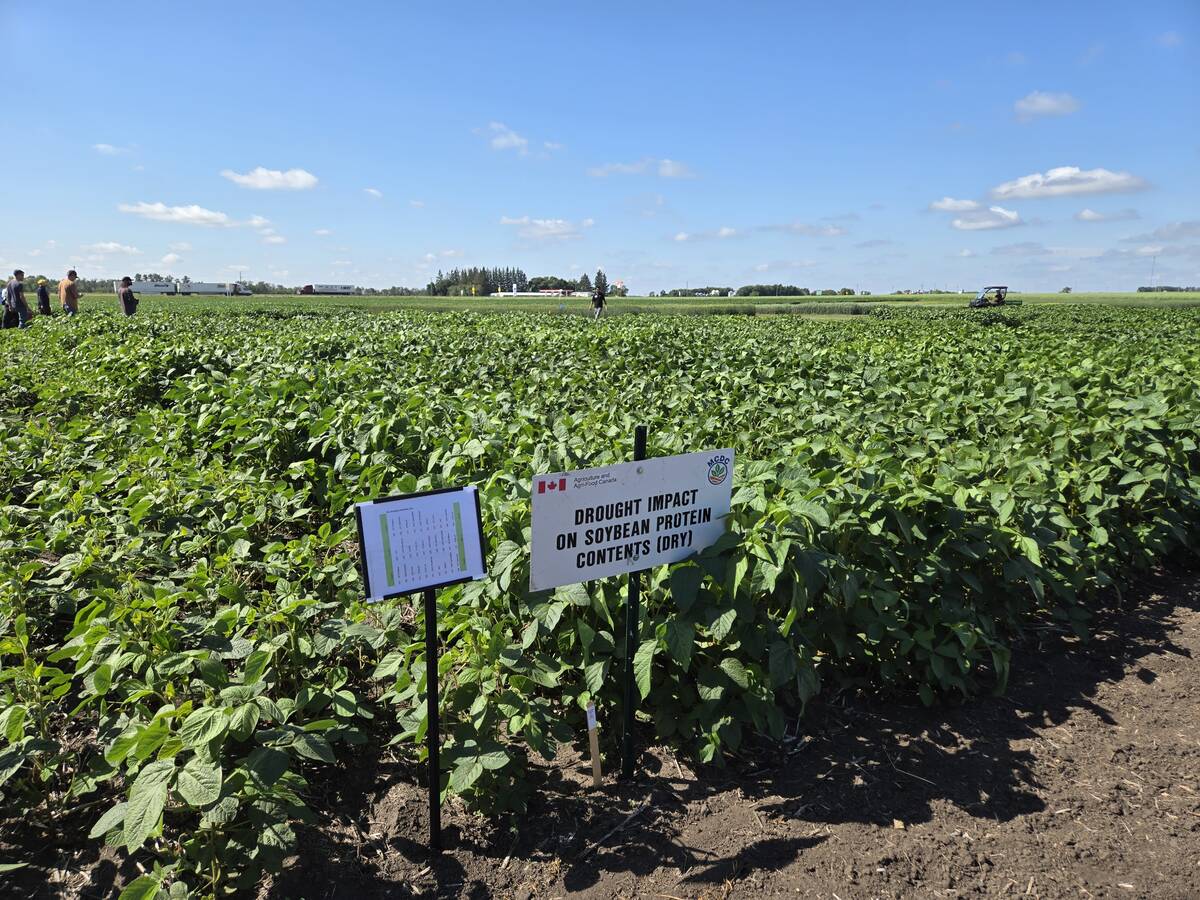The National Farmers Union in Canada opposes the deregulation of gene-edited crops.
But the NFU in Britain has a different position.
The NFU that represents farmers in England and Wales is supporting legislation in Britain that will remove “unnecessary barriers” to the development of gene-edited crops.
The legislation, introduced in the British Parliament May 25, is called the Genetic Technology (Precision Breeding) Bill. It applies to gene-edited crops and livestock and “would remove them from the regulatory system for genetically modified organisms.”
David Exwood, NFU England vice-president, endorsed the bill in a United Kingdom government news release.
Read Also

Carberry field day looks for agriculture solutions
Manitoba farmers explored research solutions for resilient crops, perpetual agronomic issues and new kinds of agricultural products at a field day at the Manitoba Crop Diversification Centre in Carberry on Aug. 6.
“This science-based legislative change has the potential to offer a number of benefits to U.K. food production and to the environment,” Exwood said.
The NFU in Scotland has a similar position.
“New technologies, including the likes of gene editing can help address positively some of the big challenges Scottish agriculture faces,” NFU Scotland president Martin Kennedy told the BBC.
“Precision breeding techniques… could allow us to grow crops which are more resilient to increased pest and disease pressure brought about by our changing climate and more extreme weather events.”
Meanwhile in Canada, the NFU is lobbying the government to reverse its decision to deregulate gene-edited crops. It’s arguing that “gene editing is not necessarily beneficial to farmers.”
On June 13, the Canadian Biotechnology Action Network hosted a meeting about the federal government’s decision to exempt certain gene-edited crops from regulation.
An NFU representative at the meeting said gene-edited foods should be regulated the same as genetically modified (transgenic) crops.
“All gene-edited products, including those with no foreign DNA, should be regulated as novel and therefore subject to government safety assessment and pre-market notification,” the NFU said in April.
In May, Health Canada released a guidance document, explaining how it will regulate gene-edited crops.
Gene editing, or genome editing, is a technology where scientists can delete or change specific genes in a plant to achieve desired traits; for example, a canola with enhanced resistance to certain disease.
Some experts believe it could transform plant science and allow plant breeders to develop crop varieties more rapidly. The best-known gene editing technology is called CRISPR – Cas.
The crop science sector has argued that gene editing is no riskier than conventional plant breeding.
Health Canada agreed with that argument.
“Gene-edited plants are just as safe as conventionally bred counterparts,” Health Canada officials said in a technical briefing held May 18.
As a result, Health Canada decided that crops developed through gene-editing, in most cases, will not require a pre-market safety assessment.
The United States, Argentina, Japan, Australia and other jurisdictions have adopted a similar position. In 2018, former U.S. Agriculture Secretary Sonny Perdue said gene-edited crops will be regulated the same as conventionally bred crops.
The Canadian NFU in a June 2 blog, said Health Canada has abandoned its responsibility to ensure that the food system is safe.
“The new ‘regulatory guidance’ turns its back on science and transparency by actually exempting many new gene-edited foods from regulation,” it said. “We are told that science is the foundation of our regulatory system. However, through its new regulatory guidance, Health Canada is in effect, pre-approving gene-edited foods.”
The Western Producer has spoken with Stewart Wells, former NFU president, about the organization’s position on gene edited crops.
An article and audio file from the interview is scheduled to be published later this month.
















